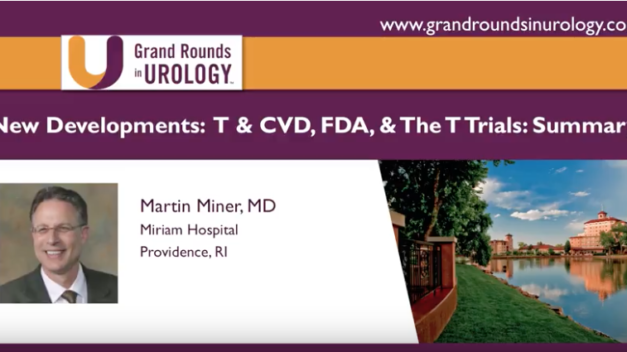Semaglutide as a Game Changer for Weight Loss
Mark A. Moyad, MD, MPH, the Jenkins/Pokempner Director of Preventive/Complementary and Alternative Medicine (CAM) at the University of Michigan Medical Center in the Department of Urology in Ann Arbor, Michigan, and Martin M. Miner, MD, Co-Director of the Men’s Health Center and Chief of Family and Community Medicine for Miriam Hospital, and Clinical Professor of Family Medicine and Urology at the Warren Alpert Medical School of Brown University in Providence, Rhode Island, discuss the potential benefits of semaglutide, a newly approved weight-loss drug. Dr. Moyad begins by summarizing the damage done by past weight-loss drugs, noting that they inevitably came with a huge catch and were never heart-healthy. He then introduces semaglutide, a recently-approved drug which has been shown to result in 15% weight loss over 2 years. Dr. Miner elaborates, explaining that there have been 4 studies of semaglutide featuring over 4500 individuals and that it is extremely safe. He highlights that the smaller dose in diabetics has also been shown to improve renal and cardiovascular outcomes, and that these outcomes are now being studied in non-diabetics. Dr. Miner argues that these results suggest semaglutide is a game changer. Dr. Moyad then discusses potential catches, noting that while the side effect profile seems good, the cost is very high at nearly $900 per month, and it is not covered by most insurance. Dr. Miner suggests that the price will go down once some time has passed from the initial approval. He does highlight as a negative the fact that semaglutide is given once per week as a subcutaneous injection, and suggests that it will be beneficial if the oral version currently under investigation is found to be effective. Drs. Miner and Moyad also ponder the long term impacts of semaglutide and sustained weight loss on testosterone levels, blood pressure, and depression. Dr. Moyad concludes by discussing his curiosity about the potential impact of semaglutide in a urologic setting.
Read More
